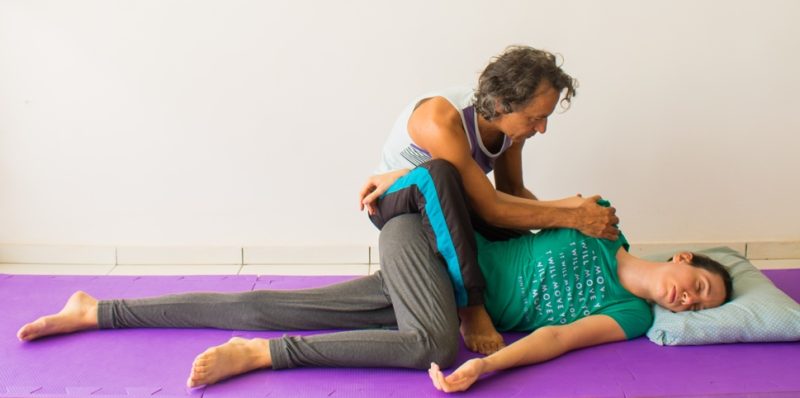
When you run a commercial website and want to make a living out of it, you’ll look for ways of monetizing your work. We from TraditionalBodywork.com are of course no different.
So, one of the things we’ve tried (notably during the years 2019 and 2020) was to step into online product and service affiliate programs (also called affiliate marketing programs), which is a popular way for bloggers and websites to make extra money. To step in or join an affiliate program you first need to become an affiliate partner. And to become a partner you will need to register and get accepted.
After acceptance you basically start with attracting Internet traffic to your own website (or Facebook, Instagram, or whatever other digital presence), and subsequently lead visitors (through so-called affiliate links) to other websites that sell something (the websites of the companies you became an affiliate partner of). If the visitor then buys a product or service on that other website, you earn a commission.
Perhaps that all sounds pretty easy, but it really isn’t. First of all, you will generally earn only between 5% and 15% of the sales price, that is, if a product sells for USD$ 50, you will receive between USD$ 2.50 and USD$ 7.50 per sales (minus currency conversion rates if applicable and payment processor fees). Moreover, commission percentages may suddenly change (at the whim of the seller), sometimes very drastically, so it’s always a risk to count on a certain monthly income.
In any case, you will need a lot of sales to make some serious money out of an affiliate program. Of course, costly products, such as an automatic massage chair (for instance a chair that costs USD$ 1,500) will give you a much higher commission. Then again, it’s also a much more competitive market, because everyone in the affiliate business wants to be an affiliate partner of companies that sell high-demand, high-priced products or services with substantial commissions attached to them.
Then, secondly, it’s not simple to get high-volume traffic to your own website or to any other Internet medium (such as Facebook, Instagram, or YouTube). You will need to be an influencer or authority, or publish a continuous stream of well written review-like articles. It often also implies that you need to know a lot about the products or services you write or talk about, which means that you sometimes need to buy them first to test them.
You will also need to publish your content in a way that makes that your articles or other digital presentations are optimized for Internet search engines, such as Google or Bing, or for social media, and so on. It costs time, often years, to gain an authoritative Internet presence, and moreover, social media and search engine algorithms change frequently which can cause your website to become much less visible in search results with lower clicks and sales as a result.
Then again, you could also start more modestly by just focusing on your existing clients (if you have those). For instance, if you are a Yoga teacher you could become an affiliate partner of a company that sells Yoga mats and props. You could then write articles about different types of Yoga mats, the pros and cons, and such, and publish those on your website or social media channels.
In this scenario, your website and social media are typically visited by your students, clients, and followers (that is, the people who trust you), and it might encourage them to buy a Yoga mat through your affiliate link. It could be a start to earn a bit extra on the side while you develop this activity into a more substantial income generator.
At any rate, the whole affiliate partner thing didn’t work out for us. We’ve tried several things, such as the affiliate marketing program from Amazon.com through which we promoted massage and bodywork books. It really brought us very, very little income. I suppose we had too little website traffic at the time, but also the commissions were very low. In addition, we never really felt comfortable doing this through our website. In some way, we felt it didn’t fit with our site.
Of course, it doesn’t mean that becoming a successful affiliate can’t work for other people or for other sites. I think it depends much on the type of website you run. For instance, if you have a site that’s based on reviewing or comparing articles or products it may be a very good way to monetize your work. Or if you have a very substantial number of visitors per day, it may also work out just perfectly.













